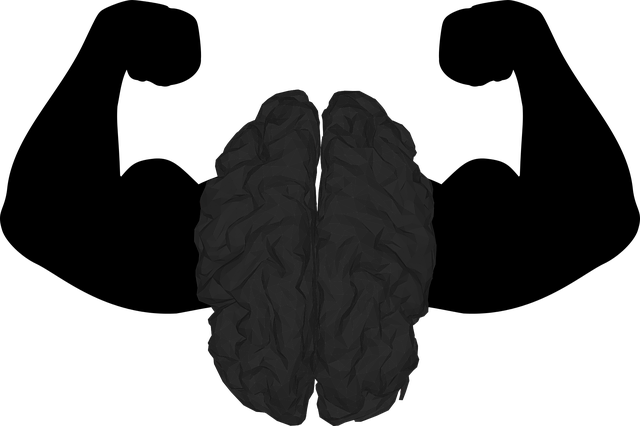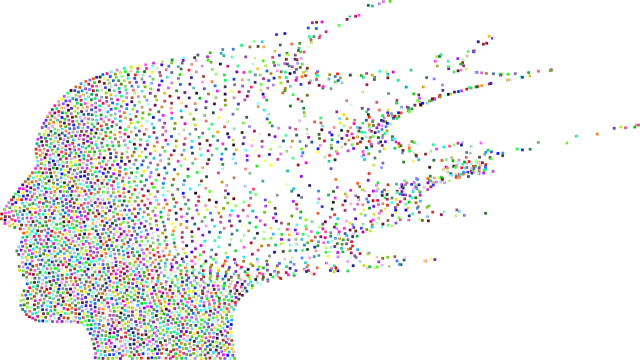This text emphasizes the critical role of mood regulation in addressing emotional volatility and mental health issues among young adults facing identity formation, academic pressures, and social dynamics. It highlights Exposure and Response Prevention (ERP) therapy as a powerful, evidence-based approach using cognitive-behavioral techniques to treat anxiety disorders effectively. By gradually exposing clients to feared stimuli while teaching communication strategies, ERP rewire's the brain's response to stress, building resilience and empowering young adults to manage their emotions. Personalized ERP plans tailored to individual preferences and triggers are crucial for successful therapy outcomes, along with cultural sensitivity in mental healthcare practices to serve diverse populations better.
Mood regulation strategies are essential tools for young adults navigating the complexities of their emotional well-being. This article explores a powerful therapeutic approach, Exposure and Response Prevention (ERP), designed specifically to address mood disorders. We delve into the significance of ERP in therapy, its step-by-step process tailored for young adult clients, and its proven benefits in real-world applications. By personalizing these strategies, individuals can effectively manage their moods and enhance overall mental health. Discover how ERP is revolutionizing therapy for young adults struggling with emotional challenges.
- Understanding Mood Regulation and Its Significance for Young Adults
- Unveiling the Role of Exposure and Response Prevention (ERP) in Therapy
- The Step-by-Step Process of ERP: A Guide for Young Adult Clients
- Benefits and Real-World Applications of ERP for Mood Disorders
- Personalizing ERP Strategies: Tips for Effective Implementation
Understanding Mood Regulation and Its Significance for Young Adults

Understanding mood regulation is paramount for young adults, a demographic often facing unique challenges that can significantly impact their mental well-being. This period of life is characterized by significant identity formation, academic pressures, and navigating social dynamics, all of which contribute to emotional volatility. Effective mood regulation strategies become essential tools for managing stress, anxiety, and potential depressive episodes—issues that, left unaddressed, could escalate into more severe mental health concerns.
Therapy for young adults plays a pivotal role in teaching them these skills. Techniques such as Exposure and Response Prevention (ERP), a form of cognitive-behavioral therapy, have proven effective in treating anxiety disorders. ERP encourages individuals to gradually expose themselves to feared situations and prevents the habitual avoidance responses, ultimately fostering healthier emotional reactions. In light of growing mental health awareness, considerations for Cultural Sensitivity in Mental Healthcare Practice are also crucial, ensuring that interventions resonate with diverse populations. Additionally, advocacy for better Mental Health Policy Analysis and Advocacy can lead to more accessible and tailored support systems, benefiting young adults in their mood regulation journeys.
Unveiling the Role of Exposure and Response Prevention (ERP) in Therapy

Exposure and Response Prevention (ERP) is a powerful therapy technique that has gained significant attention in treating various mental health conditions, particularly for young adults. This approach is rooted in cognitive-behavioral therapy (CBT), focusing on modifying maladaptive behaviors and responses to specific triggers or situations. By gradually exposing individuals to feared stimuli while preventing habitual coping mechanisms, ERP helps rewire the brain’s response to stress and anxiety.
For young adults struggling with social anxiety, phobias, or obsessive-compulsive disorder (OCD), ERP offers a structured framework for managing symptoms. Social Skills Training, as part of ERP, teaches individuals effective communication and interaction strategies, fostering better social connections and reducing isolation. Additionally, by preventing burnout prevention techniques, young adults can enhance their resilience and emotional well-being. The ultimate goal is to develop coping skills that enable them to face challenges head-on, promoting overall mental health and improved quality of life.
The Step-by-Step Process of ERP: A Guide for Young Adult Clients

The Step-by-Step Process of ERP offers a structured approach for young adult clients seeking therapy. Exposure and Response Prevention (ERP) is a highly effective technique within Cognitive Behavioral Therapy (CBT) that helps individuals manage anxiety disorders by gradually exposing them to feared situations and preventing habitual avoidance or safety behaviors. This process begins with identifying specific fears and triggers, allowing clients to gain a deeper understanding of their anxiety patterns.
Next, the therapist guides clients through gradual exposure to these triggers in a safe and controlled environment. Throughout this phase, communication strategies are crucial; therapists encourage clients to identify and challenge negative thoughts, fostering resilience building. As exposure continues, clients learn to manage their responses, ultimately reducing the intensity of anxiety over time. The final stages involve generalizing these skills to real-life situations and maintaining newfound confidence in managing emotions and behaviors.
Benefits and Real-World Applications of ERP for Mood Disorders

Exposure and Response Prevention (ERP) is a highly effective therapy for young adults struggling with mood disorders like anxiety and depression. By gradually exposing individuals to distressing situations and teaching them healthier response strategies, ERP empowers patients to manage their emotions more effectively. This evidence-based approach has shown remarkable success in clinical trials, offering long-lasting benefits that extend beyond the treatment phase.
In real-world applications, mental wellness coaching programs incorporate ERP principles to enhance communication strategies. By fostering cultural sensitivity within mental healthcare practices, these programs ensure tailored support for diverse populations. The integration of ERP into such initiatives promotes holistic healing, addressing not just symptoms but also the underlying causes of mood disorders. This comprehensive approach is vital in improving mental health outcomes and fostering resilience among young adults.
Personalizing ERP Strategies: Tips for Effective Implementation

Personalizing Exposure and Response Prevention (ERP) strategies is key to their effective implementation for young adults in therapy. Every individual’s experience with stress and anxiety is unique, so tailoring ERP techniques to fit personal preferences and triggers is essential. For instance, some may benefit more from gradual exposure to stressful situations, while others might find success through imaginal desensitization. Therapists should encourage clients to identify their specific fears and develop personalized step-by-step plans. This could involve creating a hierarchy of anxiety-provoking scenarios, starting with less challenging tasks and progressively moving towards more difficult ones.
Additionally, incorporating strategies into daily routines can enhance ERP’s impact. Stress Management Workshops within the therapy setting or even in school environments can empower young adults to learn coping mechanisms. Social Skills Training, another valuable tool, can help individuals navigate social interactions with reduced anxiety, further supporting their overall mood regulation. By combining personalized ERP plans with practical stress management tools, therapists can provide young adults with effective and sustainable strategies for managing their emotions.
Mood regulation is a vital skill for young adults navigating life’s challenges. By understanding the impact of mood disorders and adopting evidence-based strategies like Exposure and Response Prevention (ERP) therapy, individuals can gain significant control over their emotional well-being. This article has provided an in-depth look at ERP, from its therapeutic mechanisms to practical implementation tips, offering a roadmap for young adults seeking effective therapy for managing mood disorders. By personalizing these strategies, individuals can foster resilience and enhance their overall mental health.














